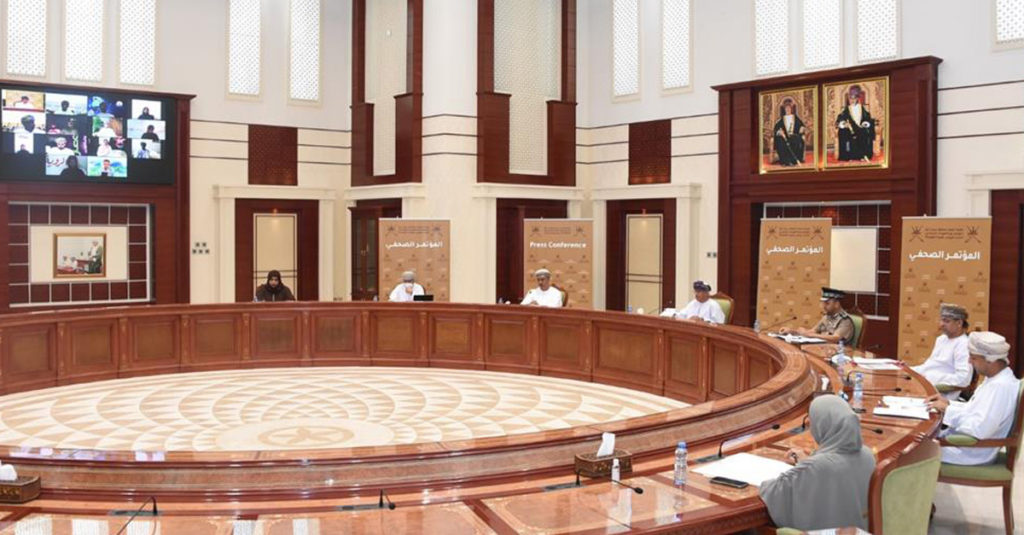
MUSCAT – Dr Ahmed Mohammed al-Saeedi, Minister of Health (member of the Supreme Committee tasked with tackling developments resulting from coronavirus), said that the health sector in the Sultanate is getting drained due to the current wave of Covid-19 infection which, he observed, “is considered the worst since the outbreak of the pandemic”.
Yet, extensive efforts have been undertaken within the health sector, with the working teams operating for 18 months, non-stop, on a daily basis, the minister added. Dr Ahmed valued the enduring support of His Majesty Sultan Haitham Bin Tarik to the health sector and His Majesty’s directives to the Covid-19 Supreme Committee. The minister made the statement during the 24th press conference of the Supreme Committee, held today at the premises of the Ministry of Education.
Most mortality cases due to Covid-19 in April were deaths with the segment of 60-year-old people who refused to take the vaccine, said Dr. Ahmed, who stressed that perpetrators of rumours against the vaccine will be punished by law.
The minister hoped that the Sultanate will receive about 3.2 million doses of Covid-19 vaccines by the end of September. “Encouraging people to follow the procedures that protect them from the virus is our Islamic, national and professional duty,” said Dr Ahmed in response to criticism staged at the Covid-19 Supreme Committee. He added that the Committee will address the concerns of some of those who refuse to take the vaccine.
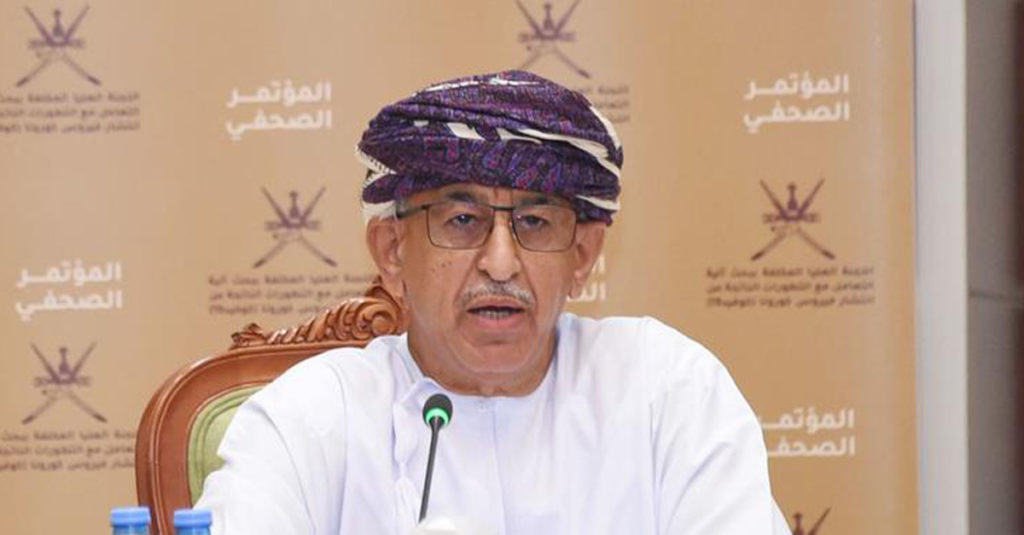
Dr Ahmed pointed out that, since the outbreak of the pandemic, government health establishments had less than 148 beds in Intensive Care Units (ICUs). “The number of those beds multiplied scores of times, thanks to the unrelenting support of His Majesty Sultan Haitham and the sincere efforts of health workers.
Quoting statistics, the minister said that the number of Covid-19 patients admitted to ICUs stood at more than 460, while 2064 doctors have been attending the cases since the start of the pandemic. Despite the shortage of workers in this sector, the Sultanate has higher workforce capacity, compared to some advanced countries, said Dr Ahmed.
In the second batch of the National Covid-19 Immunisation Campaign, the Ministry added another segment—pregnant women, who are given priority in vaccination due to their delicate condition, said Dr. Ahmed, who pointed to the presence of 40 pregnant women inflicted with Covid-19 in ICUs. The minister advised pregnant women to take the vaccines at the nearest centres providing the service.
Asked about the tourism season in Dhofar Governorate, Dr Ahmed said that a technical team tasked with studying the issue will submit its report to the Supreme Covid-19 Committee shortly. Accordingly, a decision will be taken about whether or not to allow visits to Dhofar.
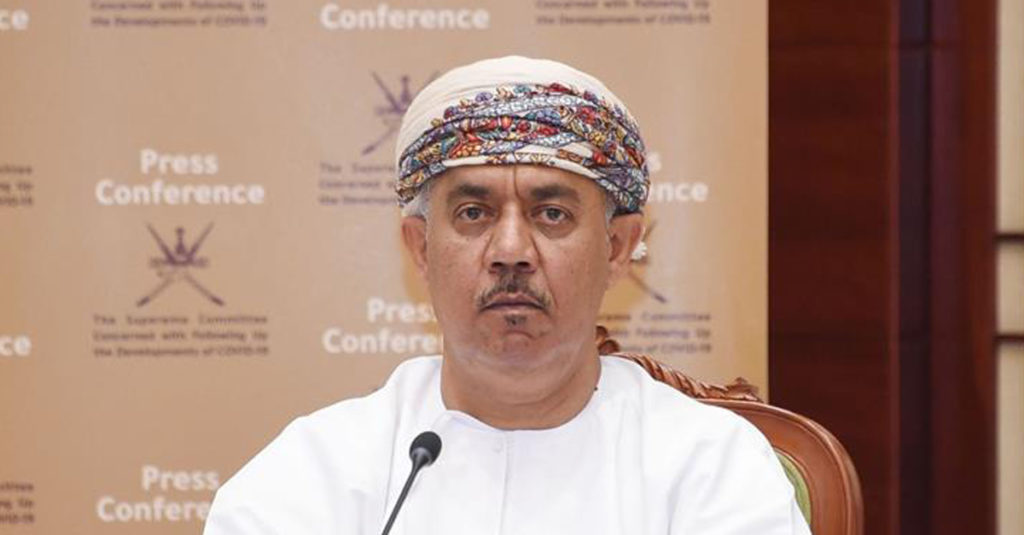
The implementation of full lockdown depends on the epidemiological situation in the Sultanate, said the minister, who pointed out that partial closure of Dhofar Governorate yielded positive results earlier. The minister said that most countries in the world keep conducting Covid-19 tests on vaccinated people because, he explained, vaccinations do not provide 100 percent protection against infection with the disease. The only difference is that, when people get the vaccine, the infection will be less severe, said the minister, adding that the Sultanate will not exempt anyone from vaccination and that a strategy is in place to ensure this objective.
The minister added that the number of oxygen condensation apparatuses stands at 85. “Oxygen equipment production units have a capacity to meet our needs”, said the minister. He refuted claims of shortage of ventilation machines in the Sultanate, saying that as many as 1,144 ventilation apparatuses exist in the Sultanate and cover all needs.
Dr Ahmed said that the Sultanate started to communicate with vaccine producing companies since mid-2020 and was among the first group of countries that joined the Covid-19 Global Access Agency (Covax). Unfortunately, the delivery of agreed quotas got delayed, said the minister, hoping that the Sultanate will receive more than 6 million Covid-19 doses by the end of this year, to cover all target segments.

Meanwhile, Salim Mohammed al Nuaimi, Transport Under-Secretary at the Ministry of Transport, Communications and Information Technology, who is in charge of the tasks of the Civil Aviation Authority, said the decisions to ban flights from India and Pakistan (and other countries in April this year and later) exempted some segments, of them citizens, health workers and medical teams (along with medical equipment and goods). The exemptions were a measure to enhance the capacity of the health sector, he added.
Al Nuaimi said that all incoming travelers undergo the same precautionary protocols, including PCR, prior to arriving in the Sultanate, as well as isolations and quarantine. He said that transit flights passengers do not mingle with other travelers or airport workers.
Brig. Mohammed Nasser al Kindi, Director-General of Operations at the Royal Oman Police (ROP), present at the press conference said that the ROP has a duty to register all violations made by establishments or individuals engaged in gatherings at private or public places in all governorates of the Sultanate. Among other duties, the ROP implemented the decisions issued by the Covid-19 Supreme Committee to ban the movement of individuals and vehicles during various periods. The ROP discovered some fake PCR shown by passengers at Muscat International Airport and dealt with them, as appropriate, in accordance with Covid-19 Supreme Committee’s procedures.
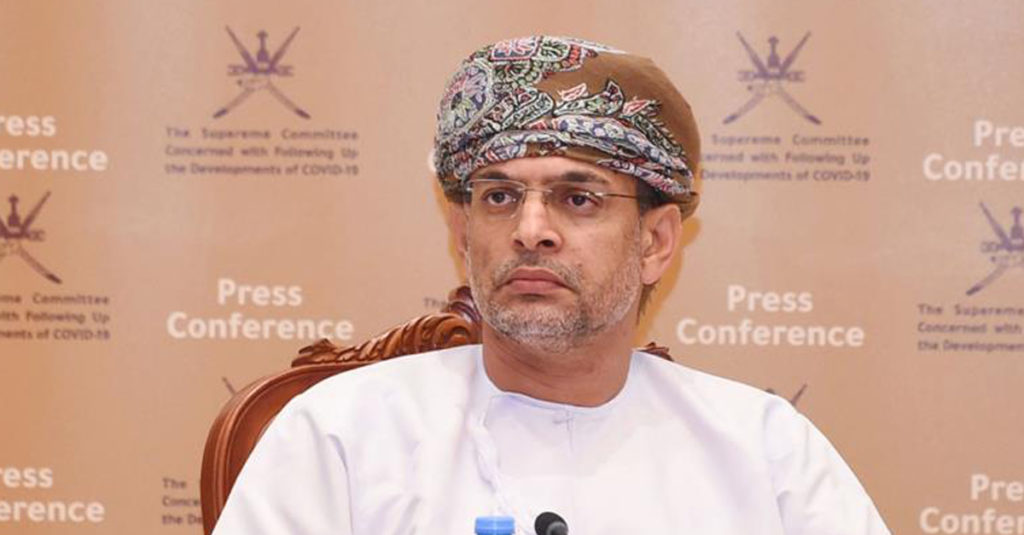
Brig. Al Kindi pointed out that Tarassud+ provides for processing services via QR or Electronic Code Passports. The document held by a passenger is screened to check if this passenger is infected with Covid-19 or if he/she took the vaccine. This shows whether the document is valid or fake, he added. The ROP is pressing ahead with monitoring different sites, looking out for gatherings, said Brig. Al Kindi, who urged all to contribute in protecting society by using telephone No. 1099 to report any breaches.
Mubarak Mohammed Al-Dohani, Director General of Commerce at the Ministry of Commerce, Industry and Investment Promotion, at the press conference said that a multi-party government team has been formed under the guidance of the Supreme Committee to follow up the extent to which commercial establishments apply the Covid-19 precautionary measures and to book violators. Through the tasks of the team, it has been found out that a large number of establishments apply precautionary measures, but some violations exist and reported.
Dr Saif Salim al Abri, Health Ministry’s Director General of Disease Surveillance and Control, elaborated that the WHO established an international method of detecting disease mutations and risks posed to public health in the world. The Sultanate reacted positively to the WHO health risk assessment and took the initiative by designing a genetic serialisation.
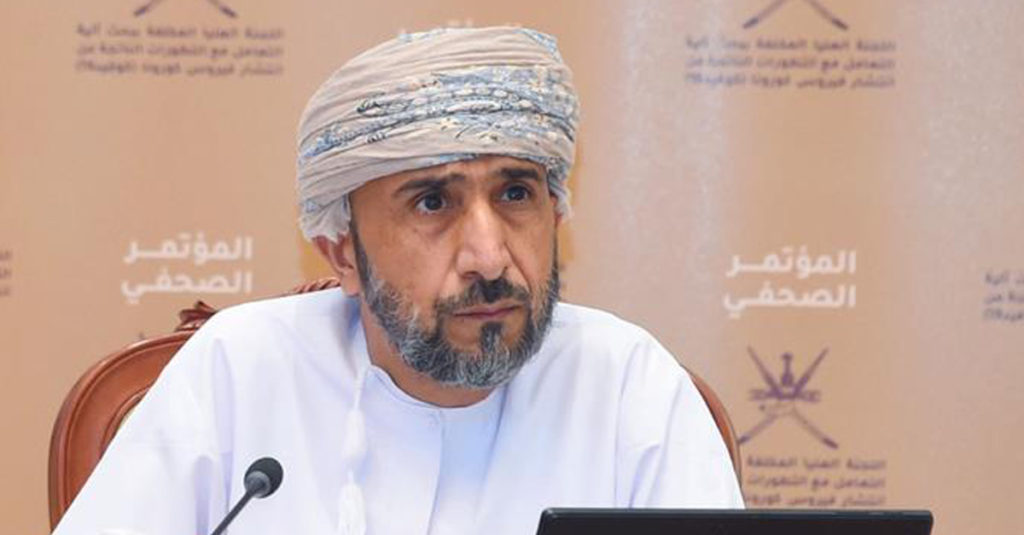
Dr Saif said that emphasis will henceforth be laid on alarming mutations that augment the ability of transfer and change as per the four clinical manifestations of the disease: Alpha, Beta, Gama and Delta. The Ministry conducted a study on local society based on these parameters, said Dr Saif, who explained that the virus accelerated the speed of its propagation by 80 percent since last year.
“We observe a rise in number of persons infected with Covid-19 across all age groups, usually from 30 to 50 years, but infections do exist in the 12-year age group and below. The reason, according to epidemiological investigation, is the holding of family gatherings, coupled with non-abidance by precautionary measures,” said D. Saif, who ruled out the probability of schools being a promoter of the pandemic. He pointed out that the comeback to classroom education is a basic demand and that the health protocol applied by the Ministry of Health and the Ministry of Education during this school year is a valid procedure that yielded fruit. The Ministry of Health conducted a year-long survey (May 2020-May 2021) that studied all decisions taken to curb the spread of the disease. The study showed that partial nighttime closure (ban on movement and business) proved to be efficient in limiting the spread of the virus, explained Dr Saif.
Badr Saif al Rawahi, Director of the Department of Contagious Diseases, said the all citizens in Musandam Governorate have been vaccinated and that the governorate registered the least number of infections with Covid-19. As many as 1 million and eight thousand doses have been administered, covering 23 percent of the target population, he said. A new batch of target people will be vaccinated right from the start of next week, said Badr al Rawahi, who pointed out that license has been given to administer four vaccines on emergency basis: PfizerbionNTech, Oxford-AstraZeneca, Sputnik, and Sinovac. Al Rawahi explained that as many as 40,000 people are being vaccinated every day in all governorates of the Sultanate, with 16,000 in Muscat Governorate alone, towards the target landmark of 23 percent of the target segments.
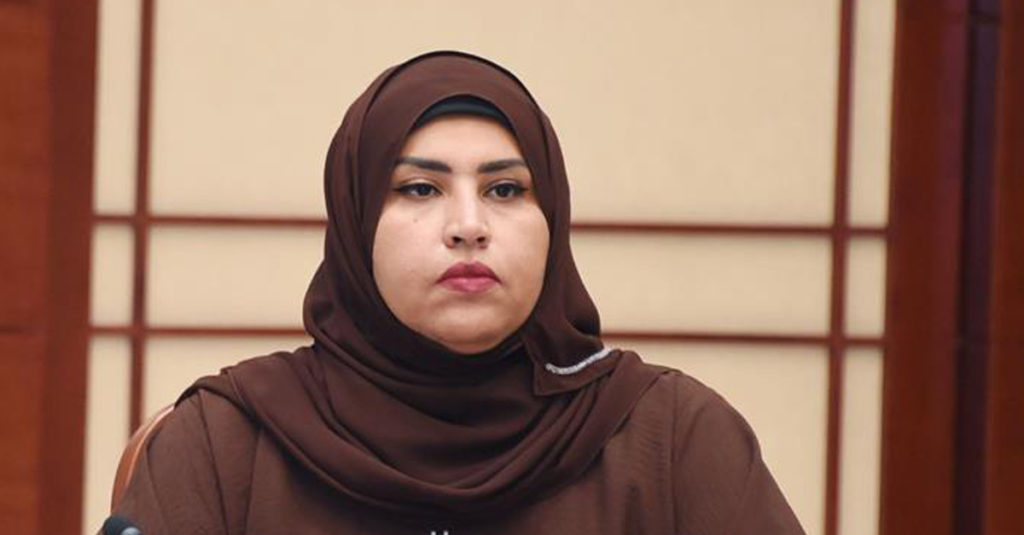
Dr Thamra Said Al Ghafri, In-charge of tasks of Director General of Health Services in Muscat, commended efforts made as part of the National Covid-19 Immunisation Campaign. In particular, the new method of advance booking of vaccination appointments (for those who visit Oman Convention and Exhibition Centre) which played a major role in making the drive a success, said Dr Thamra. The drive-thru service, which was stopped temporarily, will be resumed next week, informed Dr Thamra, noting that a new service, for vaccinating persons with special needs at their respective residences, will be announced later.
(Source: Oman News Agency)

0 Comments